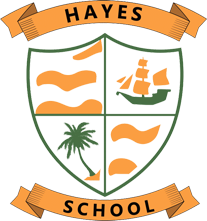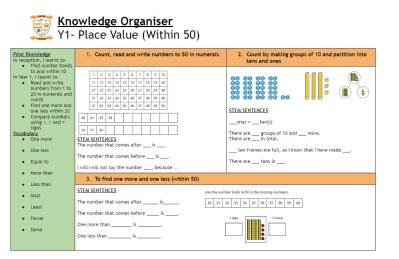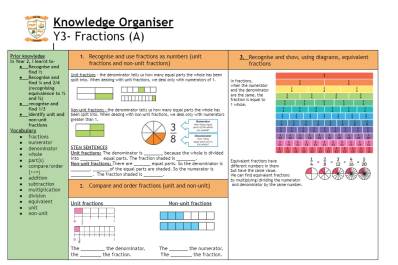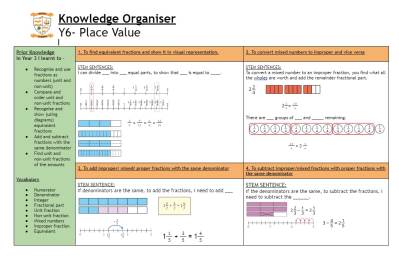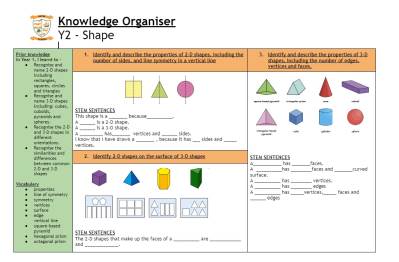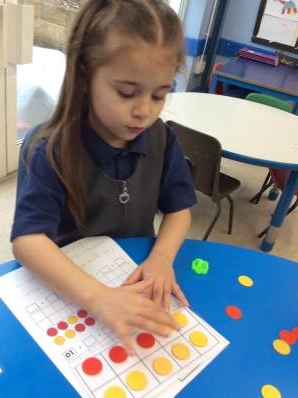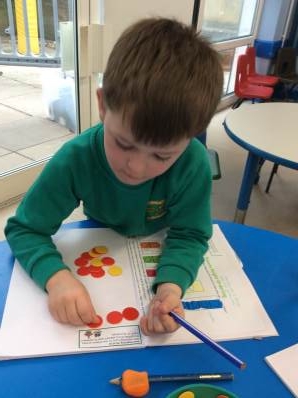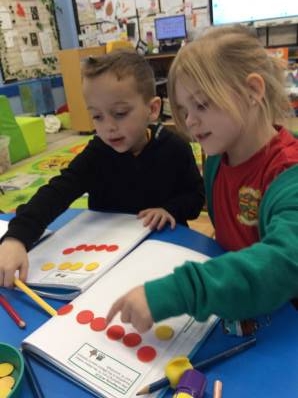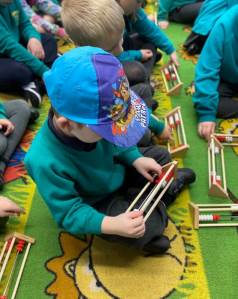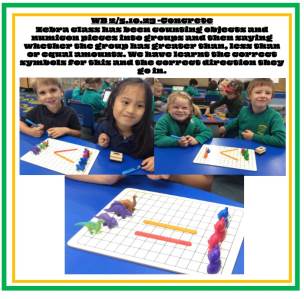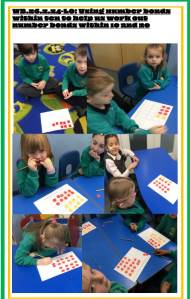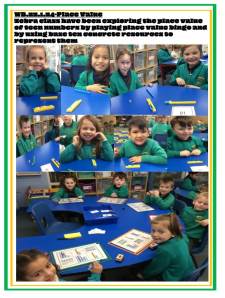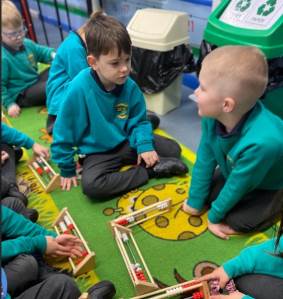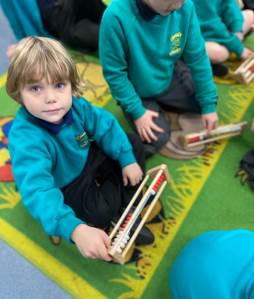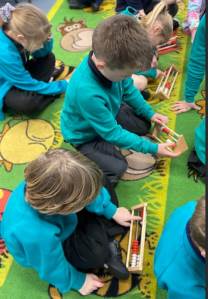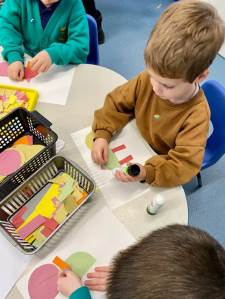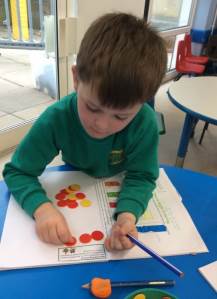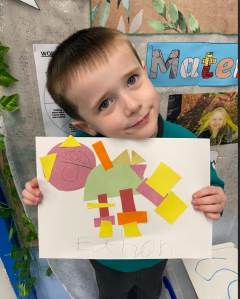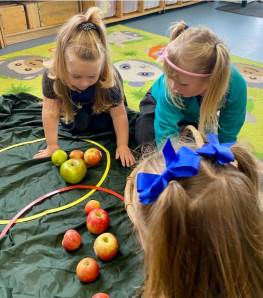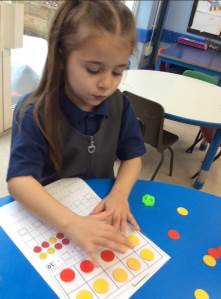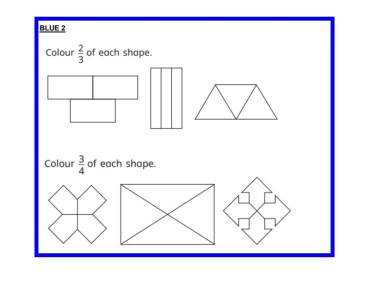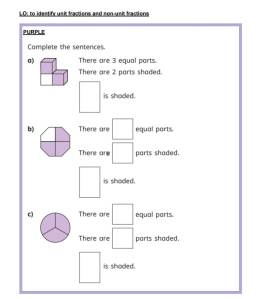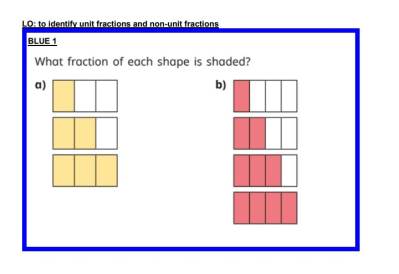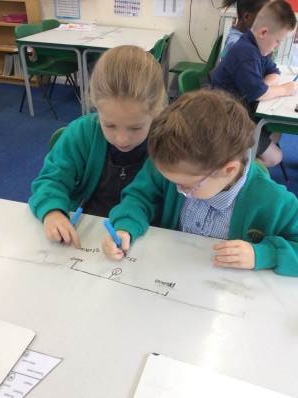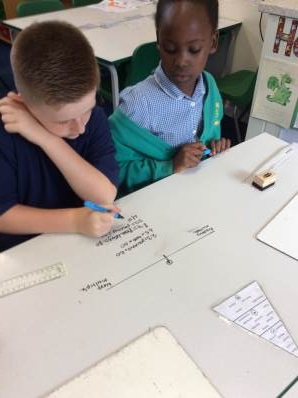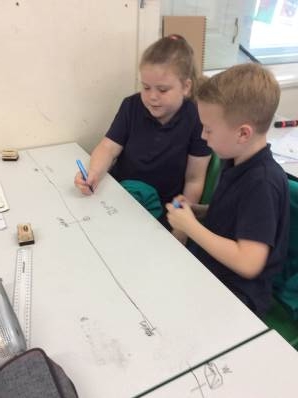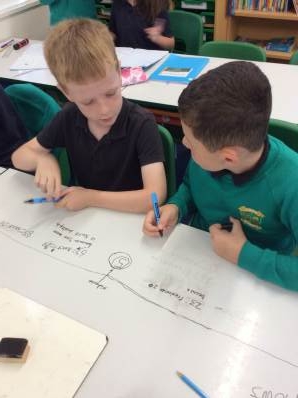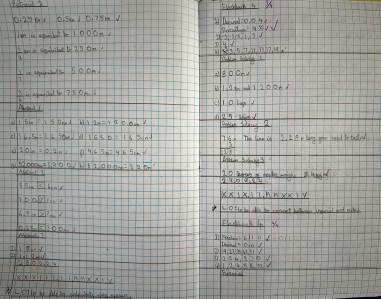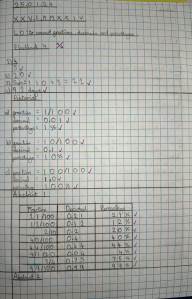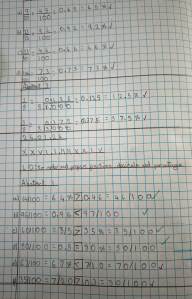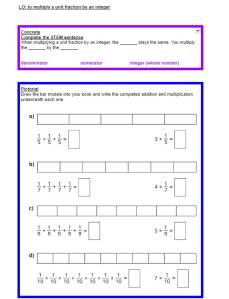Maths
At Hayes School, we aim to build enthusiastic, resilient mathematicians, who are well-equipped to apply their mathematical skills across a wide range of contexts. The children should work hard progressing through a captivating and challenging maths curriculum.
The National Curriculum for Mathematics aims to ensure that all pupils:
-
Become fluent in the fundamentals of mathematics so that they can develop their conceptual understanding and the ability to recall and apply knowledge rapidly and accurately.
-
Solve problems by applying their mathematics to a variety of problems, including breaking them down into a series of smaller steps, and persevering in seeking solutions.
-
Reason mathematically, including being able to develop an argument, justification or proof using mathematical language.
EYFS
In our EYFS classes, there is a daily review of counting through chants, subitising games and traditional number rhymes. Each lesson within the maths journey provides an opportunity for children to develop their fluency and problem solving skills through a rich, mathematical environment. Our EYFS setting provides opportunities for children to use their maths skills throughout the continuous provision. There is also a maths area, where children are able to explore a range of resources through play, which is both adult and child-led. Modelling consistently includes a range of varied manipulatives and representations to support children in recognising the mathematical concept in a range of contexts. There is a strong emphasis on developing children’s mathematical talk and reasoning. Routines in EYFS further embed children’s number knowledge such as involving children in our daily calendar, registers and story time voting. We use the Whiterose Scheme of Learning as a guide to teaching and learning and have a specific calculation policy for EYFS.
YEARS 1 TO 6
At Hayes School, we use the Whiterose Scheme of Learning as a guide to teaching and learning, incorporating many of the principles of mastery maths. We have a school calculation policy, which has been created and adapted to reflect these mastery guides. Although this forms the basis of our maths planning, teachers have a flexible approach to planning the order of skills and extending the allocated time given to each small step and block based on classroom assessments.
During whole class learning, we follow the mastery principles of fluency, varied fluency, reasoning and problem solving. At the planning stage, lessons are broken down into small, connected steps that gradually unfold the concept to ensure that coherence is evident across the stages of conceptualisation in differing contexts. Mathematical representation and structure is consistently modelled throughout the sequence using the concrete, pictorial and abstract approach to enable children to actively reason and discuss their understanding with a partner at regular intervals.
Within each lesson at Hayes, the session will begin with retrieval based around ‘Flashback 4,’ enabling children to revisit key learning. Following this, key concepts, concrete and pictorial representations are introduced to the children, first through a teacher explanation, then a paired problem before children apply their skills independently. Based on careful AFL, children should begin their journey through the mastery flow system, which takes the children on a journey through varied fluency, reasoning and problem solving. Based on careful AFL, children start the mastery flow at a point and pace, which is matched closely to their understanding until they reach higher order thinking. Furthermore, to promote inquiry-based mathematical thinking, the children take part in explicit reasoning and problem solving lessons, in which the strategy to success is broken down into small steps and applied to wider contexts. Equally, children can take part in whole class fluency sessions where the skill is secured before moving on.
Adaptation is achieved through early and consistent AFL as Hayes teachers constantly assess children’s prior knowledge to build upon. Adaptation is also seen through the varying degree of adult support provided, asking higher order questions and the use of concrete, pictorial and abstract resources. Pupils with the potential for greater depth are moved on quickly and provided with opportunities to utilise their skills in an investigative context. Pupils who are struggling to grasp a concept or procedure are identified quickly and placed in a guided, teacher-led group or conferenced at a later point in the day. For children who are not able to access their own year group’s curriculum, they will progress through a closely monitored, tailored-made curriculum, matched closely to their ISPs.
Knowledge Organisers and Assessment
Maths
Introduced in 2024, we have overhauled the way that we assess children in Y1-Y6. At the beginning of each maths unit, the children work through a pre-assessment, which tests their understanding of key concepts in maths. This is a diagnostic test, assessed at an expected level and a greater depth level, which enables the class teacher to correctly pitch the learning and ensure all learners access the mastery flow at the level that most closely matches their learning. Furthermore, we have introduced knowledge organisers, which exemplify these key concepts and provide children with the models, images, key vocabulary and STEM sentences they need. To complete the unit of work, the children undertake a post–assessment showcasing the progress they have made.
Working Walls
At Hayes, we ensure that walls are an extension of our teaching. The working walls seen in classrooms provide a snapshot into the learning taking place in the classroom. They showcase the key vocabulary from our vocabulary progression document and exemplify the key concepts being taught through the CPA approach, reasoning and problem solving. Also seen on the working wall is a child-friendly version of the mastery flow.
Mastering Number
All children across EYFS and KS1 take part in a daily 15 minute Mastering Number session published by NCETM. This project aims to secure firm foundations in the development of good number sense for all children from Reception through to Year 1 and Year 2. The aim over time is that children will leave KS1 with fluency in calculation and confidence and flexibility with number.
Becoming a Fluent Mathematician
Each child, from Y3-Y6, takes part in a 15 minute fluency session (4 times a week) where they explore an element of fluency: counting, rapid recall, mental arithmetic and written arithmetic. In Y5/6, a fractions, decimals and percentages session is added into daily fluency in anticipation of KS2 SATs. This session is added during the summer term in Y5. (Please INSERT the Fluent Mathematician policy- in important documents)
TTRS and Numbots
In Reception and Year 1, we use the programme numbots to help develop children’s subitising and number bond skills. The children also have access to this at home to help increase the fluency of these vital mathematical skills in the early years. From Year 2 - Year 6 at Hayes, we use the programme ‘Times Tables Rockstars’ (TTRS) to raise the profile of times tables and develop the rapid recall of multiplication and division facts up to 12 x 12. This programme offers initial baselines to allow teachers to pitch their tables at the right level. Features such as ‘set the tables’ allow us, as teachers, to select the tables for individual children or groups based on their baseline for them to practise during ‘studio’ games. There is also a function that allows children to practise all of the tables in a game mode called ‘garage practise’.
DoodleMaths
To support the children in their learning, each child from Y1-Y6 has a subscription to DoodleMaths. Teachers set assignments weekly as home learning, which match the objectives that the children are learning in class. Further to this, children can log on to complete their 6-a-day, which is pitched at the child’s ability to help consolidate their understanding of areas of maths they may feel less confident in.
EYFS
Maths EYFS
In Reception the children have many practical opportunities through carefully planned adult activities and play opportunities to develop their mathematical knowledge which will support them as they go through the school.
The children enjoy learning about numbers, how to count, subitise and how to build numbers up to 10 using the part part whole method. They become number experts! The children love looking at a number such as 4 and telling an adult that 3 is a part, 1 is a part, the whole is 4!
The children have a fantastic time learning about shapes, the children use them to create pictures, build castles and homes or the tallest tower. Through these learning opportunities, the children learn about the properties of shapes and how to identify them, including in the environment and how to use them in patterns and pictures.
Year 1
Maths Year 1
All of our children from EYFS to Y2 take part in the Mastering Number programme, which supports their number sense and fluency. Here are our Y1 children taking part in a Mastering Number session using rekenreks.
Year 2
Maths year 2
By Y2, all children are using the mastery flow to break down their learning into the small steps of fluency, reasoning and problem solving. Here is an example of the master flow system used in Y2.
Year 3
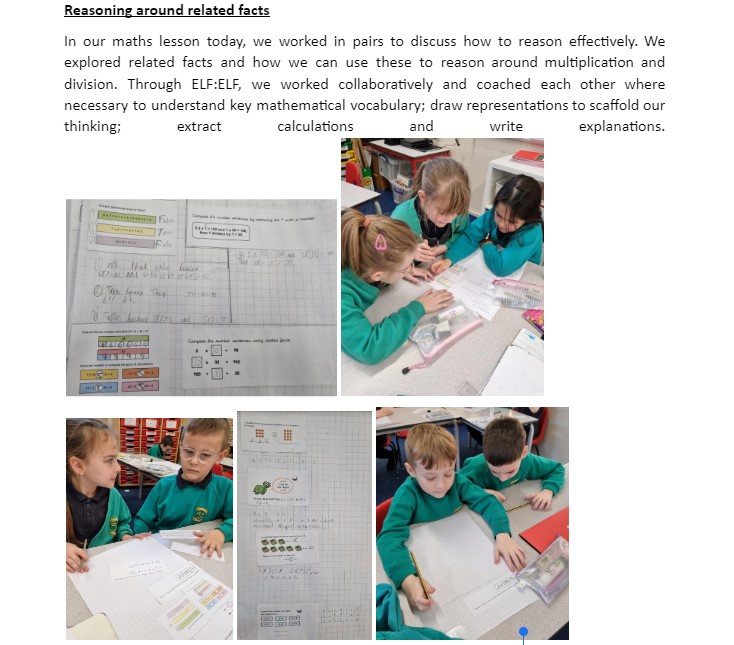 We teach discrete reasoning and problem solving lessons in each Whiterose block. Here is an example of a Y3 reasoning lesson.
We teach discrete reasoning and problem solving lessons in each Whiterose block. Here is an example of a Y3 reasoning lesson.
Year 4
Maths Year 4
We ensure maths is practical and use models and images to support children’s understanding. Here is an example of practical maths in Y4 where children are using number lines to round.
Years 5 & 6
Maths - Year 5 & 6
Here is an example of the mastery flow system used in Y5 and Y6, alongside examples of work seen in books.
Pupil Voice:
“Our teacher breaks down the question and explains it clearly. She then might use a green pen to model it on our books,” Year 6 child
“I really enjoy maths lessons. I think the problem solving questions are really challenging,” Year 5 child
“ I like getting feedback to show me what to improve on,” Year 3 child
“Maths makes me feel confident.I am really proud that I can do multiplication and division questions because I know my times tables,” Year 2 child
“Maths means counting,” EYFS child
“I am most proud of counting on a bead bar up to 100, “ EYFS child
Enrichment:
At Hayes School, maths is an integral part of the curriculum which enables children to use their skills widely. Whole school days such as Number Day, Maths Through Stories Day, TTRS challenges and fundraisers all impact on children’s conceptualisation of maths in the wider world.
-
Calculation policy Y1-Y6
download_for_offline
download_for_offlineCalculation policy Y1-Y6
- Calculation-policy-EYFS download_for_offline
download_for_offlineCalculation-policy-EYFS
- Child-Friendly Mastery Flow- cursive version download_for_offline
↑download_for_offlineChild-Friendly Mastery Flow- cursive version
- Fluent Mathematician- Whole School Approach download_for_offline
download_for_offlineFluent Mathematician- Whole School Approach
- Maths Skill Progression download_for_offline
download_for_offlineMaths Skill Progression
- Vocabulary Progression download_for_offline
download_for_offlineVocabulary Progression
- Calculation-policy-EYFS download_for_offline
